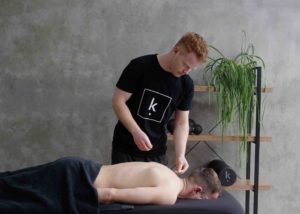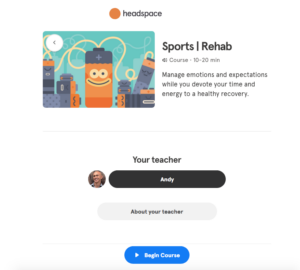The importance of maintaining a positive mindset after injury
May 31stAfter recently experiencing a wrist injury, I had to take time off from work and my regular gym and exercise routine. At first, I was frustrated and disappointed, but little did I know that this seemingly unfortunate event would become an opportunity for personal growth. Instead of feeling frustrated, I redirected my focus towards rehabilitation, meditation, and embracing a slower pace of life. This shift in perspective allowed me to be patient with my injury and give it the time it needed to heal.
When the time came to return to work, I had already formulated a plan for ongoing recovery and felt confident in the treatment approach moving forward. Fortunately, I received great support from my colleagues at Kinematics, as well as guidance from an orthopedic doctor and hand specialist. The collective expertise and assistance not only helped me trust the process but also ensured that I was doing everything within my power to promote a speedy and optimal recovery.
Reflecting on this journey, I want to share some valuable insights I gained from both my personal experience and my time working as a physiotherapist.

Following an injury, it’s important to seek a health care professional to get a thorough assessment, diagnosis (what is the injury) and prognosis (how long the injury will take to get better). In addition to having a clear management plan, maintaining a positive mindset after an injury can be challenging, but it is essential for your physical and emotional well-being during the recovery process.
Here are some tips to help you maintain a positive mindset throughout your recovery:
-
Acceptance, patience and perseverance: Acknowledge and accept that the injury has occurred. It’s natural to feel frustrated or upset, but dwelling on negative emotions can hinder your progress. Embrace the situation and focus on what you can do to heal and get back on track. Remember that healing takes time. Some days may be more challenging than others, but try to stay patient and maintain a positive attitude. Trust that with perseverance, you will regain your strength and resume your normal activities.
-
Set realistic goals and keep track of your progress: Set small, achievable goals for your recovery. Breaking down your progress into manageable steps will give you a sense of accomplishment and motivation. Celebrate each milestone, no matter how small it may seem.
-
Follow the treatment plan: Adhere to your healthcare provider’s recommendations and treatment plan. Consistency and compliance with therapies, medications, or rehabilitation exercises are crucial for optimal recovery. Trust the process and have faith in your healthcare team’s expertise.
-
Maintain a healthy lifestyle: Focus on activities and habits that promote overall well-being. Eat a nutritious diet, stay hydrated, and get enough sleep. These three things done well can have a drastic impact on your injury healing quality and time. With guidance, look to engage in activities that are compatible with your injury – focus on the things that you can do. For example, whilst I wasn’t able to do upper body work for a period of time, I used it as an opportunity to focus on rehabilitation and optimisation work for my trunk and lower body to assist with my running.
-
Practice self-care: Take time for self-care activities that bring you joy and relaxation. Engage in activities like meditation, deep breathing exercises (check out link to headspace below). Work with your health professional to discuss exercise options whilst recovering from your injury. Taking care of your emotional well-being is as important as taking care of your physical health.

If you’re like me and find it difficult to slow down and get into a good routine with meditation, I recommend giving Headspace a go. In particular, I found this Sports Rehab guided course very helpful. It focuses on navigating a calm mind during the rehab process after an injury.
Here is a link to a 30-day free trial of headspace if you’re keen to give it a try!
It’s important to note that everyone’s journey to recovery is unique. If you find it challenging to maintain a positive mindset, don’t hesitate to seek professional help from a therapist or counselor who can provide additional guidance and support.
Here at Kinematics we will help guide you through your injury recovery by providing an individualised treatment and management plan to ensure you get back from injury even stronger and more resilient than pre-injury. Our collaborative approach extends beyond our immediate team, therefore we will work closely with external practitioners and incorporate specialist referrals as required to ensure you get the best possible outcomes.
Thank you for reading! Happy rehabilitating and recovering and remember to be proactive and have a strong support network of people around you to help you on your journey.
By Nick Pearse-Smith
Physiotherapist | Kinematics Strength + Rehab
